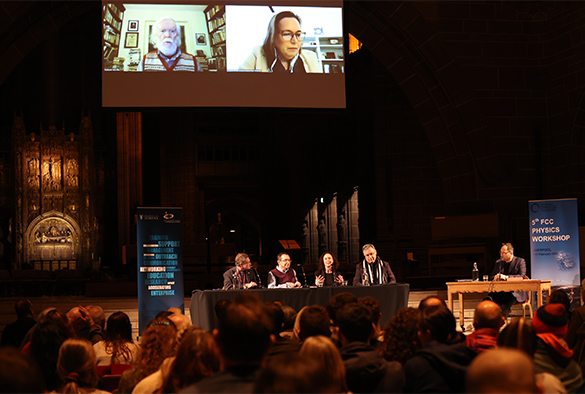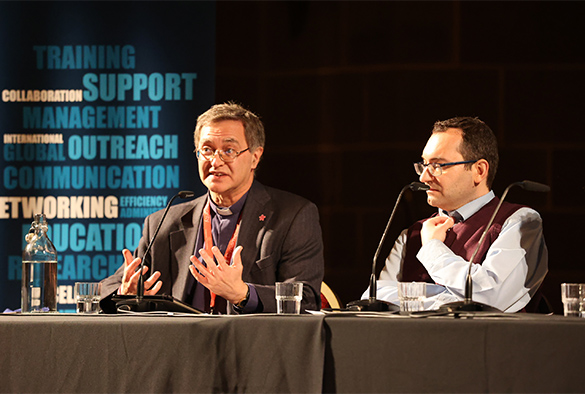Science and Faith converge in Liverpool

As international scientists gathered online to discuss the Future Circular Collider (FCC) the University of Liverpool hosted the public event '21st Century Particle Physics: discussions on Science and Faith’ at the famous Liverpool Cathedral on 8 February 2022.
Particle physicists and theologians got together to explore how a journey into the unknown takes a combination of faith, philosophy and science. On the panel was Canon Scientist Dr Mike Kirby, a medical physicist who balances his work in cancer therapy with his work as a priest. He gives talks in schools about anti-matter, dark energy and the size of the universe – and how incomprehensible it is: “People often think that God is in the gaps in our knowledge and gets squeezed out when new discoveries are made. But there's about 97% of the universe we don’t know about, which is a pretty big gap for God to be in!”
Dr Kirby continues: “The big difficulty for science, as we have seen over recent months, is to explain what we know with any certainty. Science does come up with models for trying to understand what we see and observe within the universe, but science can't answer certain questions, about life, love and emotions, for example. This is where spirituality, faith, and talking in different ways can help us to try to have a handle on this mystery that is life.”

Panel members Revd Canon Dr Mike Kirby (left) and Dr Nikos Rompotis (right). (Image credit: University of Liverpool)
Further panel members included Fr. Andrew Pinsent (University of Oxford), Dr Kate Shaw (University of Sussex), Prof John Ellis (CERN, KCL), Prof Elaine Howard Ecklund (Rice University) and Dr Nikos Rompotis (University of Liverpool), moderated by acclaimed science writer Dr Michael Brooks.
The event was organised by the Cockcroft Institute’s Professor Carsten P Welsch together with Dr Tessa Charles and Matthew Mccullough from the University of Liverpool’s Physics Department and the Project T.E.A.M.
Prof Welsch explains that the FCC will push the frontiers of knowledge still further: “Science knows no boundaries, as we have seen with the international effort to tackle the pandemic. Having an exciting goal creates ambition and vision. The Future Circular Collider provides such a focus. The world today has been transformed by the computer technologies that have spun-out from work on particle science but now, maybe more than ever, there is a role for science, philosophy and faith in shaping a future that we all want.”
The debate was a great success, attracting more than 100 participants from science and the general public. A video of the discussions will shortly be available on YouTube.